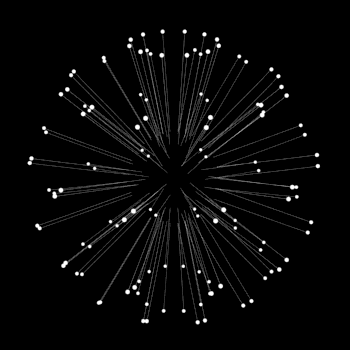When given a function in terms of #x# and #y#, and we want to find #(dy)/(dx)# in terms of #x# and #y#, we implicity differentiate.
Using our equation, we can differentiate in terms of #x#:
#d/dx[y^3]+d/dx[x^2]d/dx[y^2]=d/dx[y^(-1)]-d/dx[e^(x^2-y)]#
#=d/dx[y^3]+2xd/dx[y^2]=d/dx[y^(-1)]-(d/dx[x^2]-d/dx[y])e^(x^2-y)#
#=d/dx[y^3]+2xd/dx[y^2]=d/dx[y^(-1)]-(2x-d/dx[y])e^(x^2-y)#
The chain rule gives us: #d/dx=d/dy*(dy)/(dx)#
#d/(dy)[y^3] (dy)/(dx)+2xd/(dy)[y^2] (dy)/(dx)=d/(dy)[y^(-1)] (dy)/(dx)-(2x-d/(dy)[y] (dy)/(dx))e^(x^2-y)#
By a process of rearranging and simplifying:
#3y^2(dy)/(dx)+2x2y (dy)/(dx)=-y^(-2) (dy)/(dx)-(2x-1(dy)/(dx))e^(x^2-y)#
#3y^2(dy)/(dx)+4xy (dy)/(dx)=-y^(-2) (dy)/(dx)-(2x-(dy)/(dx))e^(x^2-y)#
#(dy)/(dx)[3y^2+4xy]=-y^(-2)(dy)/(dx)-2xe^(x^2-y)+(dy)/(dx)[e^(x^2-y)]#
#(dy)/(dx)[3y^2+4xy]=(dy)/(dx)[-y^(-2)+e^(x^2-y)]-2xe^(x^2-y)#
#(dy)/(dx)[3y^2+4xy+y^(-2)-e^(x^2-y)]=-2xe^(x^2-y)#
#(dy)/(dx)=(-2xe^(x^2-y))/(3y^2+4xy+y^(-2)-e^(x^2-y))#

